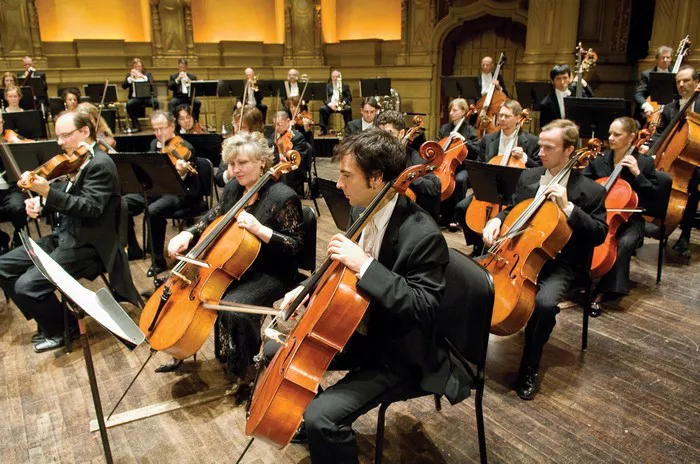Classical music is a genre that has captured the hearts and minds of audiences for centuries. It represents a pinnacle of artistic achievement, characterized by complex compositions, masterful performances, and enduring relevance. One of the key aspects of understanding classical music is delving into its historical context, particularly its time period. In this article, we will explore what the classical music time period encompasses, its defining characteristics, notable composers and works, and its lasting impact on music today.
Defining the Classical Music Time Period
The classical music time period refers to a specific era in Western music history, spanning roughly from the mid-18th century to the early 19th century. This period is often associated with the Enlightenment, a time of intellectual and cultural flourishing across Europe. It was a time marked by significant social, political, and technological changes, all of which influenced the development of music.
Historical Context and Influences
The classical music time period emerged in the wake of the Baroque era, which was characterized by ornate, elaborate compositions and a focus on drama and emotion. Influential figures like Johann Sebastian Bach and George Frideric Handel dominated the Baroque period with their intricate compositions. However, as the 18th century progressed, musical tastes began to shift.
The Enlightenment brought about a renewed emphasis on reason, clarity, and order. These ideals found expression in the arts, including music. Composers of the classical era sought to create music that was more balanced, structured, and accessible to a wider audience. This shift in aesthetic values had a profound impact on the development of classical music.
Characteristics of Classical Music
Classical music is characterized by several key features that distinguish it from other genres:
1. Formal Structure: One of the hallmarks of classical music is its emphasis on formal structure. Compositions are typically organized into distinct sections, such as movements in symphonies or sonatas. This structured approach allows for a clear progression of themes and ideas within a piece.
2. Melodic Clarity: Classical melodies are often characterized by their clarity and singability. Composers sought to create memorable and easily recognizable themes that could be developed and elaborated upon throughout a composition.
3. Balance and Symmetry: Classical music is known for its sense of balance and symmetry. Composers carefully crafted their works to achieve a harmonious relationship between different musical elements, such as melody, harmony, and rhythm.
4. Instrumentation and Orchestration: The classical era witnessed advancements in instrumental technology and orchestration. Composers had access to a wider range of instruments and explored new possibilities for orchestral color and texture.
5. Emotional Range: While classical music is often associated with elegance and refinement, it also encompasses a wide emotional range. Composers were adept at conveying a range of emotions, from joy and exuberance to introspection and melancholy.
Notable Composers and Works
The classical music time period produced a wealth of iconic composers and masterpieces that continue to captivate audiences today. Some of the most notable composers of the era include:
1. Wolfgang Amadeus Mozart (1756-1791): Mozart is widely regarded as one of the greatest composers in history. His prolific output includes symphonies, operas, concertos, and chamber music. Works such as “Eine kleine Nachtmusik,” “The Magic Flute,” and his Requiem remain enduring classics.
2. Ludwig van Beethoven (1770-1827): Beethoven’s revolutionary compositions bridged the classical and romantic eras. His symphonies, including the iconic Fifth and Ninth Symphonies, expanded the possibilities of orchestral music and pushed the boundaries of musical expression.
3. Joseph Haydn (1732-1809): Known as the “Father of the Symphony” and the “Father of the String Quartet,” Haydn was a prolific composer who played a crucial role in shaping classical music. His works, such as the “Surprise” Symphony and the “Emperor” Quartet, exemplify his mastery of form and innovation.
4. Franz Schubert (1797-1828): Schubert’s lyrical melodies and emotional depth make him a standout figure in the classical music canon. His lieder (art songs), piano sonatas, and chamber music showcase his gift for melody and harmonic richness.
5. Johann Sebastian Bach (1685-1750): While Bach is primarily associated with the Baroque era, his influence extended into the classical period and beyond. His keyboard works, such as the Well-Tempered Clavier, remain foundational for pianists and composers alike.
Legacy and Impact
The classical music time period left a profound legacy that continues to shape music today. Its emphasis on form, clarity, and emotional expression laid the groundwork for subsequent musical developments. The innovations of classical composers paved the way for the romantic era, with composers like Beethoven pushing the boundaries of musical expression and individuality.
Furthermore, classical music remains a vibrant and vital part of contemporary culture. Orchestras and chamber ensembles around the world perform classical repertoire, keeping these timeless works alive for new generations of listeners. Additionally, classical music education plays a crucial role in nurturing young musicians and fostering an appreciation for the rich heritage of classical music.
Conclusion
In conclusion, the classical music time period represents a golden age of musical innovation and artistic achievement. Its blend of formal structure, melodic clarity, and emotional depth continues to resonate with audiences worldwide. By exploring the historical context, defining characteristics, notable composers and works, and lasting impact of the classical era, we gain a deeper appreciation for this enduring and influential genre of music.

